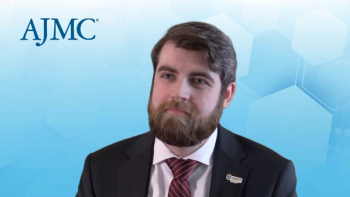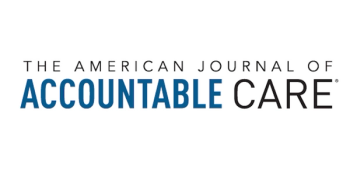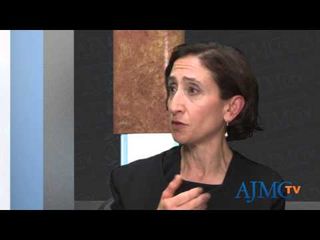
Policy
Latest News


What We’re Reading: Autism Rates Rising; Cancer Drugs in Shortage; CMS Promoting Patient Safety, Health Equity
Latest Videos

CME Content
More News

Payment models that align financial incentives of payers, providers, and patients can mitigate spending growth in thoughtful ways, but the details of the models matter.

This retrospective study examined food insecurity and neighborhood disadvantage in health system patients as predictors of acute health care utilization.

Insured lower-wage employees had lower prevalence of mental health conditions but greater severity, with more hospital admissions and emergency department visits than high-wage employees.

A ruling by District Judge Reed O’Connor on March 30 called the future of preventive care access into question.

The National Cancer Plan is being implemented as part of the Cancer Moonshot aims; inflation and higher spending are driving up monthly plan premiums under the Affordable Care Act; millions of people may lose Medicaid coverage after pandemic protections end.

Under preferred pharmacy networks, unsubsidized Part D beneficiaries faced substantial incentives and moderately switched toward preferred pharmacies, whereas subsidized beneficiaries were insulated and demonstrated little switching.

Rates for reimbursement cuts will be lower than expected within Medicare Advantage plans; financial safety nets, in the form of Social Security and Medicare, are likely to be unable pay full benefits; CDC teams experience symptoms similar to East Palestine, Ohio, residents following train derailment

The ruling of Braidwood Management v Becerra puts HIV pre-exposure prophylaxis (PrEP) coverage at risk, potentially leading to more than 2000 preventable HIV infections in the coming year.

Digital health data can facilitate the participation of underrepresented and diverse patient populations in clinical trials, but first the FDA must build its capability to evaluate such information in its regulatory processes for new drug development.

Pharmacy benefit manager reform is a major trend in state managed care policy, said Adam Colborn, director of government relations at the Academy of Managed Care Pharmacy (AMCP).

A panel assembled at the American Academy of Dermatology 2023 Annual Meeting encouraged the audience of dermatologists to advocate together for needed changes in payment, access, and practice.

Gov. Mark Gordon sings a ban on the use of abortion pills in Wyoming; a new study shows that Affordable Care Act has reduced racial disparities in health care; California Gov. Gavin Newsom announces a contract to make affordable insulin.

Preventing tobacco use has saved Californians billions, according to recent research.

Speakers at the American Academy of Dermatology 2023 Annual Meeting highlighted the potential of DataDerm to tell the story of dermatological care in the United States, but some also cautioned that the registry only reflects those who have access to care in the first place.

The authors highlight the diversity of multiagency electronic data-sharing approaches and present a case study addressing the opioid crisis

Since 2004, the number of individuals with HIV receiving antiretroviral therapy (ART) has increased 300-fold through the US President’s Emergency Plan for AIDS Relief (PEPFAR).

The Biden administration released the list of 27 Medicare Part B drugs that are subject to rebates back to the government for having price increases that rose faster than inflation as well as the removal of out-of-pocket costs for some vaccines covered under Part D.

Community social determinants of health such as rurality and low socioeconomic status moderate the association between an individual’s race and emergency care use.

Biden’s proposed budget emphasizes expanding health care and lowering drug costs; nasal spray zavegepant (Zavzpret) approved for treating adults with acute migraine; updated guidelines may help more women detect breast cancer early on.

Health plans use data to decide on quality improvement initiatives. Having a dashboard that characterizes how equitably plans are serving their enrollees would promote health equity.

Cyber attacks on health care are raising cyber insurance costs; Democrats and Republicans clash over what constitutes a cut vs a reform; rural hospitals begin conversion under a new federal payment program.

Medicaid expansion deal proposed in North Carolina; FDA gains new leverage over quick drug approvals; Walgreens announces it will not dispense abortion pills in several states where it’s legal.

The FDA approved the first drug for the rare disease Friedreich’s ataxia; House Republicans seek information from pharmacy benefit managers (PBMs); FDA panel narrowly supports respiratory syncytial virus (RSV) vaccine for older adults.

A new investigation blames the COVID-19 pandemic on a leak from a laboratory in China; Colorado proposes co-pay limits for EpiPens; the first at-home flu and COVID-19 test maker, Lucira Health, declares bankruptcy.

Court decision could ban abortion pill, mifepristone, nationwide; Illinois gears up to fight mental health crisis among children; CMS rejects expanded coverage for Alzheimer drug, Leqembi.















